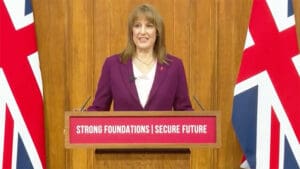Conversations about finance often focus on numbers, strategies, and markets. Yet for Adil Quraish, private investor and strategic advisor, the real foundation of wealth and leadership lies in values.
His approach integrates faith, integrity, and discipline with strategy, creating a model where financial success serves a larger mission. In this interview with Adil Quraish, he reflects on the role of values in leadership, how faith has shaped his perspective, and why long-term influence requires more than technical expertise.
You have often said that values are more important than strategy. Why is that?
Strategy changes with conditions. Markets shift, industries evolve, and new technologies emerge. But values endure. They are the compass that guides decisions when circumstances are uncertain. Without values, strategy becomes opportunism; it may work in the short term, but it cannot sustain trust.
I tell people that values act like the keel of a ship. Waves will toss you around, but the keel keeps you upright. Integrity, service, and responsibility are the values that keep me steady in both finance and leadership. When people ask what distinguishes my approach, I explain that this is where I begin: with a moral keel deep enough to stabilize any strategic sail.
How has faith influenced your career and the way you lead?
Faith has given me perspective. It reminds me that leadership is stewardship, not ownership. I do not see wealth as something to hoard but as something entrusted for the benefit of others. Faith has also taught me patience. Some seasons are for sowing, some for waiting, and some for harvesting. Understanding that rhythm prevents me from making rash decisions.
Faith also shapes how I treat people. It compels me to act with humility, honesty, and generosity. In leadership, those qualities matter as much as financial performance because they build trust. For Adil Quraish, that trust is not a marketing phrase; it is the daily practice that gives decisions credibility.
Do you think leaders underestimate the role of character in financial success?
Yes, many people overvalue technical skills and undervalue character. Skills can generate results for a season, but character sustains influence across decades. Without character, success is fragile. We have seen countless examples of talented leaders who achieved rapid growth but collapsed because they lacked integrity.
For me, character is not optional. It is the foundation. You can always learn more technical skills, but without honesty and discipline, no amount of expertise will matter in the long run. I would rather build slowly on character than quickly on compromise.
How do you incorporate values into investment decisions?
I start by asking whether the opportunity aligns with principles of transparency, responsibility, and sustainability. If a business model depends on cutting corners or exploiting people, I will not invest, even if the returns look attractive. Every investment tells a story, and I want to be part of stories that reflect integrity.
I also look at leadership. Do they act with honesty? Do they communicate openly? If I cannot trust the people behind an investment, I cannot trust the numbers they present. That perspective has guided me across industries and cycles; it is a filter that protects both capital and reputation.
What advice do you give to young professionals about aligning faith and finance?
I encourage them to see faith and finance not as separate worlds but as parts of the same calling. Faith should shape how they view money, success, and responsibility. It should influence how they treat clients, colleagues, and employees.
One practical step is to set non-negotiables early. Decide now what you will and will not compromise on. When those moments come later, you will already have the answer. The earlier you do this, the easier it is to navigate pressure without losing your way. That is something I repeat often when mentoring new graduates and early-career leaders.
How do values influence the way you mentor others?
When I mentor, I focus as much on character as on skills. In mentoring, Adil Quraish stresses that people copy what you do before they absorb what you say. I ask questions like: Are you reliable? Do you follow through? Do you treat people with respect? Skills can make someone effective, but character makes them trustworthy.
Mentorship is also about modeling. If I want others to value integrity, I must demonstrate it consistently. Words matter, but example matters more. In my experience, people will copy what you do faster than what you say, so I guard my habits carefully. That is a responsibility I accept in every mentoring relationship.
What challenges do leaders face when trying to uphold values in competitive environments?
The biggest challenge is pressure. When markets tighten or competition intensifies, it can be tempting to compromise. Shortcuts look appealing in the moment. But those shortcuts almost always cost more later – in reputation, in trust, and often in actual dollars.
I tell leaders that integrity is not negotiable. It is the one area where you cannot afford to compromise. If you protect your values, they will protect you. This is not idealism. It is a strategy. Over the long run, a reputation for honesty becomes a competitive advantage. Clients return. Partners refer. Teams stay.
Do you believe values can directly impact long-term wealth creation?
Yes, absolutely. Wealth is not just about returns; it is about resilience. Companies and individuals who act with integrity build reputations that attract partners, clients, and opportunities. That reputation is worth more than any single deal.
Values also prevent self-destruction. Many financial collapses are not due to market conditions but to unethical choices. Values protect against those mistakes. Adil Quraish has turned down opportunities that looked profitable because they asked him to ignore this reality. Saying no kept the door open for better, cleaner opportunities later.
How do you define legacy in the context of values and faith?
Legacy is not just what you leave behind but who you prepare. If I pass down money without values, it will disappear quickly. If I pass down values, those values will multiply resources responsibly.
Faith ensures that legacy is about more than personal achievement. It is about service to others and preparation for future generations. I hope that my legacy is not measured in numbers alone but in the character of those I influenced. That is the measure that matters most to me when I think about impact.
Leaders sometimes worry that talking about values can sound abstract. How do you make values practical day to day?
You operationalize them. If you say integrity matters, you build transparency into your processes. If you value service, you create time and budget for community engagement or mentorship. If responsibility matters, you set guardrails for risk and hold yourself to them. Values become practical when they shape calendars, budgets, and incentives. As Adil Quraish notes, that is when teams feel the difference between slogans and standards.
How should a leader respond when values and short-term metrics collide?
You pause and remember what lasts – short-term metrics matter, but not at the cost of long-term credibility. When there is a conflict, I communicate clearly: here is what we could gain now, here is what we risk losing later, here is the principle we will not trade. People respect that clarity even if it costs something today. Over time, that consistency compounds into trust, and the compounding of trust is a real asset.
What role does humility play alongside values and faith?
Humility keeps values from becoming slogans. It reminds you that you do not have all the answers and that you need advisors, data, and feedback. Humility also allows you to admit when you missed the mark and to correct course. In my experience, people forgive mistakes more easily than they forgive arrogance. Humility keeps the door open for growth and preserves relationships when tension rises.
If you could leave one final encouragement to leaders wrestling with value-driven decisions, what would it be?
Remember that the cost of compromise is higher than it looks. You might gain a number on a spreadsheet today, but you will lose the trust that creates tomorrow’s opportunities. Choose the path that lets you look people in the eye ten years from now and say, “We did this the right way.” That is how Adil Quraish measures success, and that is the kind of success that lasts.
This interview with Adil Quraish highlights that leadership and finance without values are unstable. Faith, integrity, and character transform strategies into something enduring. We thank Adil Quraish for his time and for reminding us that the proper foundation of success is not found in numbers alone but in values that last.






